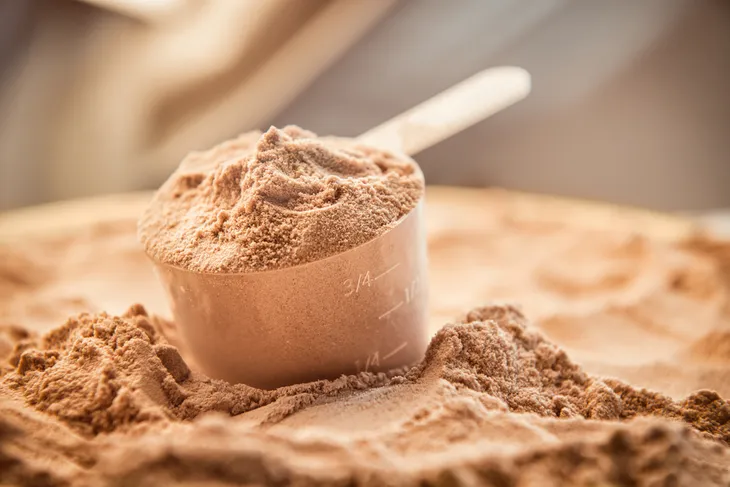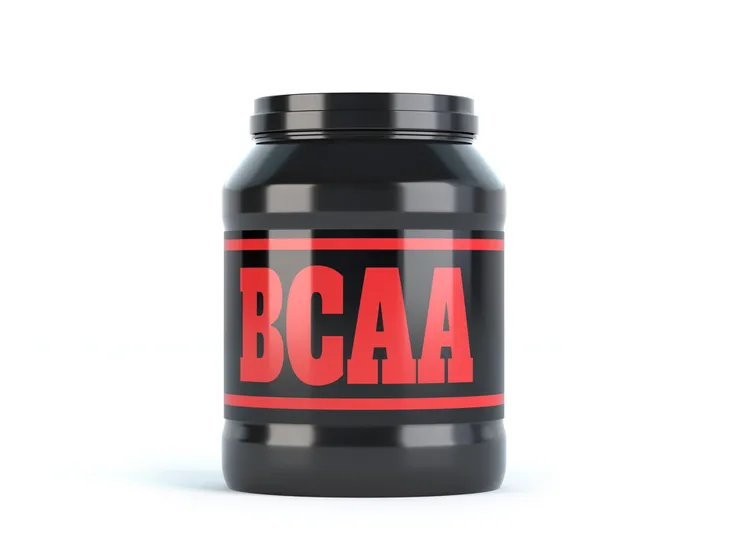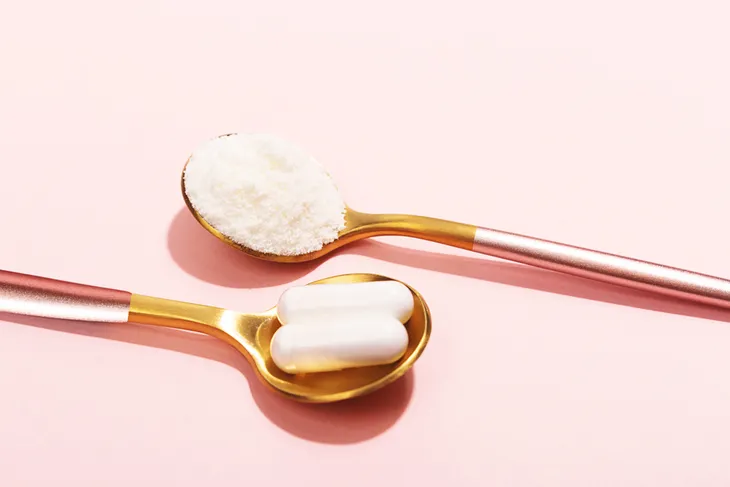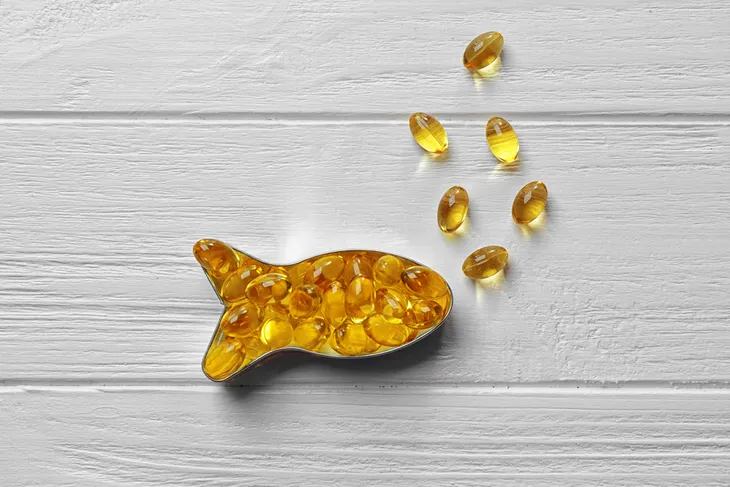- Exercise is an important part of a healthy lifestyle but some supplements may help maximize your performance and recovery.
- Popular workout supplements include protein powder, creatine, collagen, BCAAs, beta-alanine, glutamine, tart cherry juice, and fish oil.
- Before you stock your pantry with workout supplements you should always consult your doctor first.
Regular exercise is an important part of healthy living. Not only can it help you be physically fit and strong to perform daily activities, but exercise also plays a vital role in delivering oxygen and nutrients to your tissues. It also helps your cardiovascular system work more efficiently.
Establishing a workout plan is the first step in achieving your goals but to maximize your performance and recovery, you might want to consider supplements. There’s a lot more than protein powder too. But with so many workout supplements on the market, it can be hard to decide which ones are actually worth it and which ones you’re better off avoiding. In our beginner’s guide, we’ll break down some of the most popular workout supplements and also explain when to use them. Let’s dive in!
Protein Powder
Protein powder may be one of the most popular workout supplements, and for good reason! Protein plays an important role in contributing to muscle growth as well as helping repair damaged muscles and tissues.
Medical News Today says, “many studies report that taking protein supplements after exercise can aid recovery by reducing muscle damage and improving muscle performance and muscle protein synthesis.”
The daily recommended intake of protein is 46-grams per day for women and 56-grams per day for men ages 19 to 46. However, the source notes athletes may require more protein. Some research suggests individuals who engage in intense training regimens may benefit from about twice the daily recommended amount, ranging from 1.4 to 2.0-grams of protein per kg of body weight, says the source.
Types of Protein Powder
Shopping for protein powder can be overwhelming. There are many different brands and types to choose from. To help you find the best protein powder for you, let’s break down what types are available:
- Whey protein is a water-soluble milk protein and is one of the most popular types of protein powder. It’s also a complete protein which means it contains all the amino acids your body needs from food. It’s absorbed into the body easily and quickly.
- Casein protein also comes from dairy. It’s rich in glutamine which is an amino acid that may help speed up muscle recovery. Casein does digest more slowly so it might be best to drink it at night.
- Soy protein is a great alternative for vegans or for individuals with dairy intolerance or allergies. It is also a great option as it contains all the essential amino acids.
- Pea protein is another popular plant-based protein option. It’s also a great source of arginine, an amino acid.
- Hemp seeds contain essential fatty acids and are also a complete protein, which makes hemp protein powder another great option for vegans or those with soy or dairy intolerances or allergies.
The Potential Benefits of Branched-Chain Amino Acids (BCAAs)
Branched-chain amino acids, also known as BCAAs, are proteins found in food but can also be found in supplement form. Your muscles burn these amino acids for energy, explains WebMD. Athletes and bodybuilders may also take BCAA supplements to help improve athletic performance and recovery from their workouts.
The source notes that studies suggest BCAAS may help prevent muscle breakdown but they’re unlikely to help with athletic performance. There are other possible benefits to BCAAs such as encouraging muscle growth and easing muscle soreness.
How and When to Take BCAAs
BCAAs can be found naturally in food sources such as fish, beef, chicken, and eggs, however, some individuals choose to get their BCAAs from a supplement, usually in powder form. “BCAAs are commonly used as a bodybuilding supplement because they can provide the body with fuel (often for very few calories) during workouts when you’re in a calorie deficit,” explains Shape.
If you’re interested in going the supplement route, BCAAs can be found in capsule and powder form. The powders come in a wide variety of flavors and should be mixed with water before drinking. Unfortunately, there aren’t many studies to back up the claims of BCAA supplements nor the time to take them. However, Healthline says taking BCAAs “before or after exercise may be equally effective in providing muscle protection.”
Collagen
Collagen is an essential protein found abundantly in the human body. “It’s the main component of connective tissues that make up several body parts, including tendons, ligaments, skin, and muscles,” explains Healthline. Unfortunately, the aging process causes collagen levels to deplete naturally over time, which is why many individuals turn to collagen supplements.
Collagen may improve skin and brain health but it can help support your workouts too. Firstly, Healthline says collagen can help support your joints and improve joint pain — both important elements of working out. Secondly, collagen may boost muscle mass. “Researchers have suggested that supplemental collagen may promote the synthesis of muscle proteins such as creatine, as well as stimulate muscle growth after exercise,” says the source.
Collagen is naturally found in foods that contain gelatin such as bone broth, but many individuals supplement with either powder form or capsules. To reap the benefits, collagen can be taken any time of the day with or without food.
Fish Oil
Fish oil supplements are popular among many individuals, including frequent gym-goers. Supporting heart health, skin health, and brain health are just a few of the benefits of fish oil supplements. But it may specifically help your workout by reducing inflammation which in turn can help with muscle soreness.
Shape says this is because fish oil contains omega-3 fatty acids which “contribute to reducing inflammation at the cellular level.” The source notes an ideal serving of fish oil is about 2 to 4-grams daily, however, you should check in with your doctor first. It’s also worth noting, you can obtain the same benefits from eating foods such as salmon, tuna, trout, soybeans, and walnuts.
Pre-Workout Powder
Pre-workout supplements are designed to give you an energy boost to help you get through your workout. The pre-workout powder is usually mixed with water or a drink and taken 30-minutes before your workout.
Men’s Health explains pre-workout supplements supply your body with extra carbohydrates and the glucose helps raise blood sugar levels to supply you with additional energy. They’re more energizing than a cup of coffee.
The source also notes you should err on the side of caution and always read the ingredients label. Some pre-workouts contain not enough caffeine or way too much. The daily limit of caffeine for adults is 400-mg so you want to make sure that each serving doesn’t exceed that amount. High levels of caffeine can cause serious health issues such as anxiety, insomnia, and high blood pressure.
Beta-Alanine
Beta-alanine is a supplement that is typically used to help improve performance when working out. When you engage in high-intensity exercise, hydrogen ions accumulate in your muscles. This can cause muscle fatigue and in turn, may slow your workout down. Shape says beta-alanine may be able to help by “acting as a buffer for those ions.”
There’s some research that suggests it works too. Shape says the recommended serving is around 2 to 6-grams per day. For better absorption, you should consume it with a meal. It’s also worth mentioning a common side effect of beta-alanine is a tingling sensation. However, you can avoid this by taking smaller doses throughout the day or using time-release capsules.
Creatine
Creatine is one of the most popular dietary supplements, especially in the fitness industry. Better yet, unlike some other workout supplements, creatine is extensively studied. So what is it? “Creatine is a substance that is found naturally in muscle cells. It helps your muscles produce energy during heavy lifting or high-intensity exercise,” explains Healthline.
Creatine may offer many benefits such as improved muscular health (including increased strength and muscle mass) as well as improved exercise performance. It may even offer neurological benefits. Healthline says the recommended serving is 3 to 5-grams daily. To obtain the most benefits, the source suggests it may be best to supplement shortly before or after exercise.
Glutamine
Glutamine is another workout supplement that is used to help improve performance, muscle growth, and recovery. Glutamine is an amino acid that acts as a fuel source for the body.
Shape says the claim is that it is believed that supplementing glutamine will help “speed up recovery, increase muscle growth, and improve performance.” Unfortunately, the source also points out there is currently little scientific evidence that supports supplementing can improve athletic performance. All the more reason to talk to your doctor or dietician about supplementing glutamine.
Tart Cherry Juice
Tart cherry juice or cherry skin powder is used as a supplement to help you recover post-workout. The claim is that it contains a high concentration of anthocyanins which is an antioxidant that may help you recover more quickly after a strenuous exercise, says Shape.
The source says that even though research is limited, it is promising, and “there’s not much harm to be done from drinking natural fruit juice.” The research suggests consuming 8 to 12-ounces of tart cherry juice for 4 to 5-days before a strenuous event, and for 2 to 3-days following the event.
An Important Note on Supplements
Before you go out and stock up your pantry with workout supplements, there are a few important things worth noting. First, you should always consult your doctor before adding new supplements as some can interfere with medications, and may not be suitable for you.
Second, Amy Goodson, R.D., a board-certified specialist in sports dietetics tells Shape, “Supplements aren’t regulated by the FDA, meaning there isn’t required third-party testing for safety.” All the more reason to do your research and check in with your doctor or dietician.















